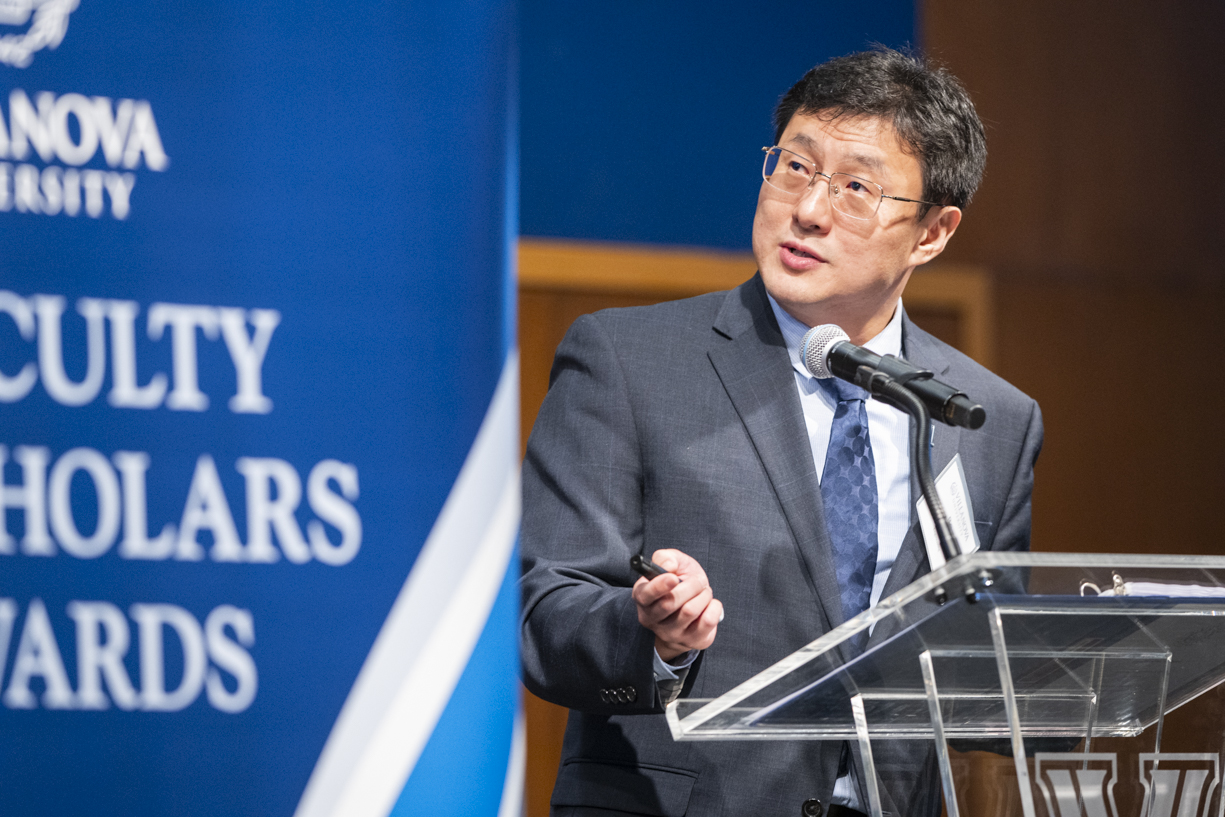
3 minute read
Small Talk
Dr. Bo Li shares what inspires him about the field of nanomaterials
Associate Professor of Mechanical Engineering Bo Li, PhD, has had a banner year as an expert on nanomaterials and polymers. His research explores techniques that can be used to monitor health conditions and to create coatings that offer protection in extreme environmental conditions.
In addition to receiving multiple grants this past year from the National Science Foundation, Dr. Li also led two major research papers—published in Polymer and Nature Communications—related to 3D printing and nanomaterial assembly, respectively. For his growing body of scholarship, Dr. Li was honored at the 2024 Commencement with the University Mid-Career Scholar Award, presented by Villanova’s Office of the Provost.
Away from his Hybrid Nano-Architectures and Advanced Manufacturing Laboratory, Dr. Li devotes time to connecting with young students through a library outreach initiative. His commitment to research and community engagement exemplifies the impact educators and researchers can have on society.
Q: What about mechanical engineering inspires you?
A: The ability to make something useful. Mechanical engineering is a collection of different minds from the mechanical side, robotics or materials. Also, mechanical engineering can be integrated with many fields such as medicine, health care and aerospace to advance our technologies in making something useful and impactful.
Q: What led you to pursue this profession?
A: I received my undergraduate and master’s degrees in Polymer Engineering both from Sichuan University and my PhD in Nanomaterial Engineering from Northeastern University. I was not satisfied with the level of control in the existing manufacturing processes in handling these materials. When I began establishing my path here at Villanova, I wanted to figure out my niche. Since I was educated in both, I asked myself if there was a way I could combine polymer with nanomaterials.
It is challenging, but building a new manufacturing platform out of nanomaterial and polymer is rare. A key difficulty lies in the stark differences in surface and mechanical properties between nanomaterials and polymers. While most water-based assembly systems focus on hydrophilic nanomaterials and hydrophilic polymers, other combinations have remained largely unexplored. I saw so many possibilities and have strived to achieve them.
Q: What are your short-term academic goals?
A: I will be working on filing a few new patents and hopefully a world record related to touch sensors. Great things are happening in the lab with the help of five PhD students and undergraduates. We have accumulated exciting results over the years that we would like to publish, and we hope to keep working with our communities and seeing an impact.
Additionally, I look forward to continuing our library STEM program, which collaborates with the Norristown, Downingtown, Radnor and Easttown libraries to educate students and parents on manufacturing and mechanical engineering. My goal is to expand this initiative in the future. It’s been a fun experience being not just a researcher but also an educator.

